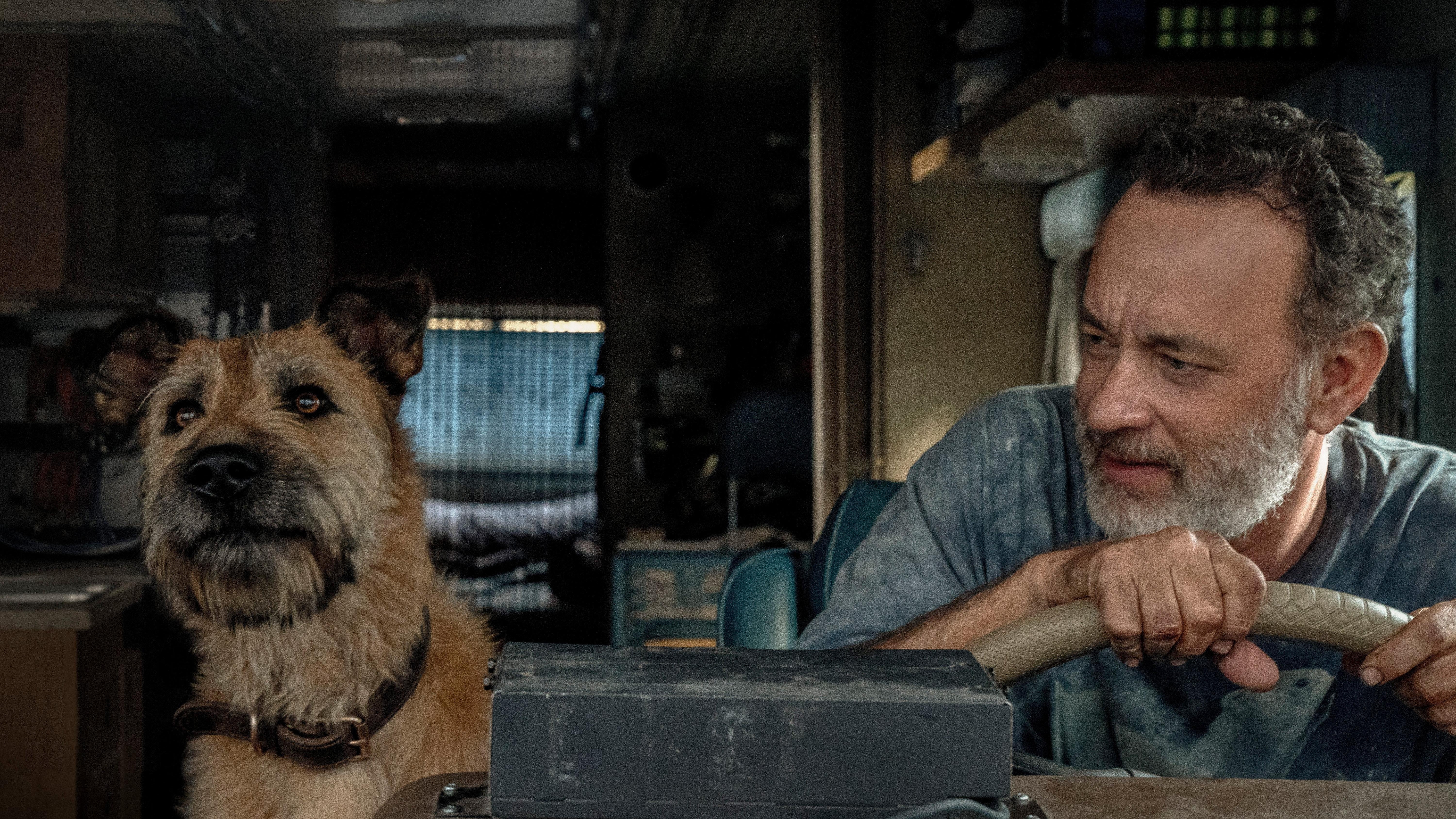Tom Hanks makes the post-apocalypse cuddly in Finch
It's the end of the world as we know it, and you'll feel fine

Having once held audiences’ attention for well over an hour with nothing but a volleyball for company, Tom Hanks was a natural choice to play the title role in Finch, a post-apocalyptic drama in which he’s the only human actor we ever see (save for three people glimpsed at a distance during a flashback). That’s not to say that his character, Finch Weinberg, is alone. As the film begins—some years after a massive solar flare that destroyed the ozone layer, leading to food shortages that apparently wiped out much of humanity in short order (more from violence than starvation)—he’s surveying what remains of St. Louis, accompanied by his beloved terrier and a small, mobile robot that he calls Dewey. The latter looks and behaves a bit like WALL•E, trundling around collecting useful items; it can also tolerate direct sunlight, whereas Finch has to don full protective gear in order to avoid being roasted by UV radiation.
Finch’s dog, likewise, would surely either starve or fry were Finch not there to constantly protect the mutt. And some ominous coughing fits suggest that he might not be for much longer. Consequently, Finch, who presumably worked in robotics prior to the cataclysm, has something more ambitious than Dewey in the works: a full-sized humanoid companion, gifted with consciousness on par with our own. (Quite a breakthrough for a guy with no colleagues and few resources, but he does at least have a lot of free time. Plus, there’s no real indication of when the film takes place, even if Finch listens to Don McLean and Talking Heads. It could theoretically be half a century in the future.) The robot, which eventually takes the name Jeff, has the inquisitive spirit of a child, and Finch eventually becomes a sort of coming-of-age road movie, with Finch teaching Jeff about life as they head to San Francisco in an RV ahead of an impending “superstorm.”
While Cast Away was mostly a solo show for Hanks, this film is very much a two-hander throughout, albeit with one computer-generated lead. Caleb Landry Jones not only provides Jeff’s voice—which starts out sounding like “fitter happier” machine speech, then gradually evolves to become more human—but he was also physically present on set for the entire shoot, providing a motion-capture template for the robot. This has a strange, likely unintended effect: Jeff frequently exhibits what’s unmistakably the body language of a young person. Seeing a big metal dude sit in the casual, relaxed pose of a college student is just plain weird, and it makes no sense in context; Jeff learns by imitating Finch, who’s over 60 and moves like it. One can perhaps justify this as thematically relevant, since the film involves torch-passing that’s usually generational. Still, it undermines Jeff’s ostensible reality, making the character come across like the digital “skin” that the robot in fact is.
That’s a relatively minor issue, though. Finch’s main problem is its amiable, low-key vibe, which feels at odds with such a grim scenario. At times, the movie plays like a buddy comedy, with Finch as exasperated straight man and Jeff as accident-prone goofball; when Finch tells Jeff that the solar flare turned Earth’s sky into Swiss cheese, the robot takes his words literally and stares upward seeking actual dairy products. And while the dog’s admittedly adorable, Finch’s desire to ensure that it’ll be cared for after he’s gone doesn’t exactly make for high drama. Director Miguel Sapochnik (Repo Men, several key Game Of Thrones episodes, lots of other TV) expertly milks tension from a sequence that sees Finch and company pursued by (unseen) strangers after Jeff naïvely wanders into a trap for scavengers, and Hanks sells the heck out of a sad monologue about how it was that Finch came to have a dog in the first place. For the most part, though, this is a film that, had it given its protagonist a different name, could have been called Glad Max.